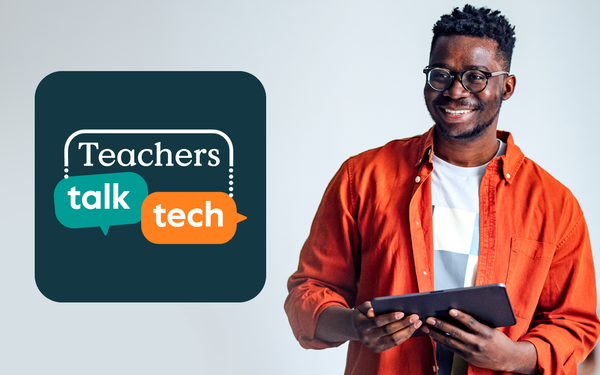Five major EdTech shakeups in the English classroom
The role of technology in English language learning and teaching is a hot topic in education, but are teachers ready? Five new episodes of Cambridge University Press & Assessment’s Teachers Talk Tech podcast take a closer look at the role of AI, virtual reality, digital inclusion, game-based learning and innovation in teaching.


The podcast series from Cambridge University Press & Assessment is hosted by education expert Hayo Reinders and explores major innovations in English language learning and assessment. Experts from Cambridge and friends discuss these developments in detail and offer practical suggestions on how teachers can make it work for them. The episodes, which were broadcast throughout April and May, have already been listened to thousands of times. You can listen to all episodes now but here’s a teaser of what to expect.
AI: don’t forget the human!
In this episode, two experts ask: Can we trust AI? Dr Jing Xu, our Head of Propositions Research, and Professor Robert Godwin Jones from Virginia Commonwealth University, discuss what AI and tools such as ChatGPT might mean for language learning. Jing showcases some of the fantastic work that is coming out of Cambridge University Press & Assessment such as the AI-powered Write & Improve and the online Linguaskill test. He praises the capabilities of AI as an enhancement to learning, but stresses the importance of the human in the loop model.
Can you learn in outer space?
It’s now possible for students to move around ‘museums’, ‘foreign cities’, ‘the deep sea’ and even ‘outer space’ as part of their learning journey without leaving the classroom. In Teaching in virtual reality, teacher, writer and lecturer Raquel Ribeiro from Brazil explores how by using a virtual reality VR headset, learners can enter an immersive learning experience. She covers some of the practical questions around using VR in the language classrooms including how to create meaningful activities for learners.
Access all areas
Dr. Hisham AlSaghbini, our Regional Recognition Manager, and Professor Judit Kormos from Lancaster University talk about how teachers can ensure that language learners with diverse abilities are able to access digital technology. In Digital inclusion, the guests explore the various aspects of digital inclusion and how technology can meet the needs of neurodiverse students. It covers recent developments on digital inclusion in course design, assessment and everyday classroom practice.
More playtime please!
How video games can be used as a powerful learning tool was the topic of the episode: Game-based learning. Marianne Pickles, our Head of Assessment Development, and Justin Edwards from Microsoft discuss some of the benefits of learning with digital games and how they can be integrated in the language classroom. One example discussed was Adventures in English with Cambridge, an award-winning resource for learning English in Minecraft developed by Cambridge University Press & Assessment.
Small steps to big innovation
Innovation is here to stay; innovation takes time; small steps are crucial; and teachers must be willing to take risks. These are the areas discussed in the episode Innovation in teaching. Professor Martin East from University of Auckland and Kasia Brzoska from Cambridge discuss different ways in which teachers might innovate in the classroom as well as constraints and challenges they face.





